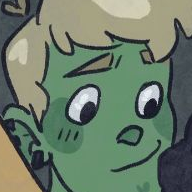Real, Surreal, Fantasy, and other modes of writing
-
Similar Content
-
- 2 comments
- 102 views
-
- 0 comments
- 129 views
-
- 1 reply
- 192 views
-
- 13 replies
- 959 views
-
Looking for a gay "System-Fantasy" story, where a gay Main Character slowly gains levels, powers, and ranks
By W_L,
- 1 reply
- 163 views
-




Recommended Posts
Create an account or sign in to comment
You need to be a member in order to leave a comment
Create an account
Sign up for a new account in our community. It's easy!
Register a new accountSign in
Already have an account? Sign in here.
Sign In Now